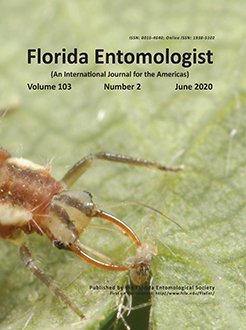Little is known about the effect of adult leafhopper age and its oviposition period on the emergence of egg parasitoids. The objective of this study was to determine the emergence rate of egg parasitoids that attack eggs of the corn leafhopper, Dalbulus maidis (DeLong) (Hemiptera: Cicadellidae), when the adult corn leafhopper differs in age and is subject to different lengths of time for the oviposition process. A total of 4 treatments compared adult females of D. maidis of 2 different ages, young (2-wk-old) and mature (8-wk-old), as well as 2 periods of oviposition of different lengths (3 and 6 d). The adult parasitoids emerging from the eggs of D. maidis were Anagrus virlai Triapitsyn and Anagrus columbi Perkins (both Hymenoptera: Mymaridae). When analyzing the interactions of leafhopper age at oviposition, it was found that the age of the leafhopper females (2-wk-old vs 8-wk-old) had a different effect on the number of oviposited eggs for the 2 oviposition periods. On the other hand, in the emergence of parasitoids, there were no significant differences between age and oviposition period, but the emergence of parasitoids was related to the number of eggs oviposited by D. maidis.
How to translate text using browser tools
10 July 2020
Effect of the Oviposition Period and Age of the Females of Dalbulus maidis (Hemiptera: Cicadellidae) in the Emergence of Egg Parasitoids
Iskra M. Becerra-Chiron,
Gustavo Moya-Raygoza,
Alejandro Muñoz-Urias

Florida Entomologist
Vol. 103 • No. 2
June 2020
Vol. 103 • No. 2
June 2020
corn leafhopper
Hymenoptera
parasitism




